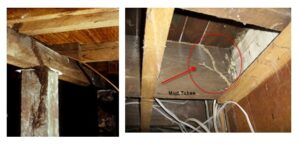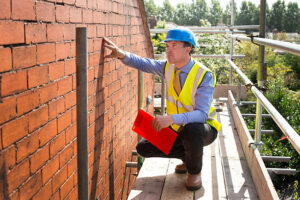Termites, often referred to as “silent destroyers,” can wreak havoc on your home or property without you even realising it until it’s too late. These tiny insects feed on cellulose materials like wood, paper, and cardboard, making them a formidable threat to the structural integrity of your home. We’ll shine a spotlight on termites, discussing their biology, the signs of infestation, and most importantly, how to prevent and treat termite problems effectively.
Understanding Termites
Termites are social insects that live in colonies, and each colony can contain thousands to millions of individuals. There are three primary types of termites found in most parts of the world: subterranean termites, drywood termites, and dampwood termites. Subterranean termites are the most common and destructive in Australia.
Signs of Termite Infestation
Identifying a termite infestation early is crucial for preventing extensive damage. Here are some common signs to watch for:
- Mud Tubes: Subterranean termites create mud tubes to travel from their nest to their food source. These tubes are typically found along foundations, walls, or crawl spaces.
- Discarded Wings: When termites swarm, they shed their wings. Finding discarded wings around window sills, doors, or other entry points is a sign of termite activity.
- Hollow-Sounding Wood: Tap on wood surfaces in your home. If they sound hollow or papery, it could indicate termite damage.
- Cracked or Bubbling Paint: Termites can cause paint to blister or crack as they tunnel through wood beneath the surface.
- Frass: This is termite droppings and looks like tiny wood-coloured pellets. If you find frass around your home, it’s a strong indicator of an infestation.
- Sagging Floors or Ceilings: Severe termite damage can lead to structural issues, including sagging floors or ceilings.

Preventing Termite Infestations
Prevention is the best defence against termites. Here are some steps you can take to minimise the risk of termite infestations:
- Regular Inspections: Schedule annual termite inspections with Resicert to catch any early signs of infestation.
- Reduce Moisture: Termites are attracted to moisture. Fix leaky pipes, ensure proper drainage, and use dehumidifiers in damp areas.
- Eliminate Wood-to-Ground Contact: Keep wood, such as firewood or mulch, away from the foundation of your home.
- Seal Cracks and Openings: Seal any cracks or openings in your home’s foundation, walls, and roof to prevent termites from entering.
- Use Termite-Resistant Materials: When building or renovating, consider using termite-resistant materials like treated wood or concrete.
- Maintain Landscaping: Trim shrubs, trees, and bushes away from the house to reduce potential termite entry points.

Treating Termite Infestations
If you suspect or confirm a termite infestation, it’s essential to act quickly. Effective treatment methods include:
- Chemical Treatments: Pest control professionals can apply termiticides to the soil around your home to create a barrier that repels or kills termites.
- Bait Systems: Termite bait stations can be placed around your property to attract and poison termites. This method can be highly effective but may take time.
- Fumigation: For severe infestations, whole-house fumigation using gas fumigants may be necessary to eliminate the termites.
- Localised Treatments: For smaller infestations, localised treatments, such as injecting termiticides directly into termite galleries, may suffice.
Remember that DIY termite treatment is not recommended. Professional pest control experts have the experience and tools to effectively eliminate termite colonies while ensuring the safety of your home and family.

Conclusion
Termites are a formidable threat to your home’s structural integrity, but with vigilance and proper preventative measures, you can reduce the risk of infestation. Regular inspections, moisture control, and prompt professional treatment are your best defences against these silent destroyers. Take action to protect your home from termite infestations today. If you’re noticing signs of infestations, don’t wait until it’s too late – Resicert can help.






